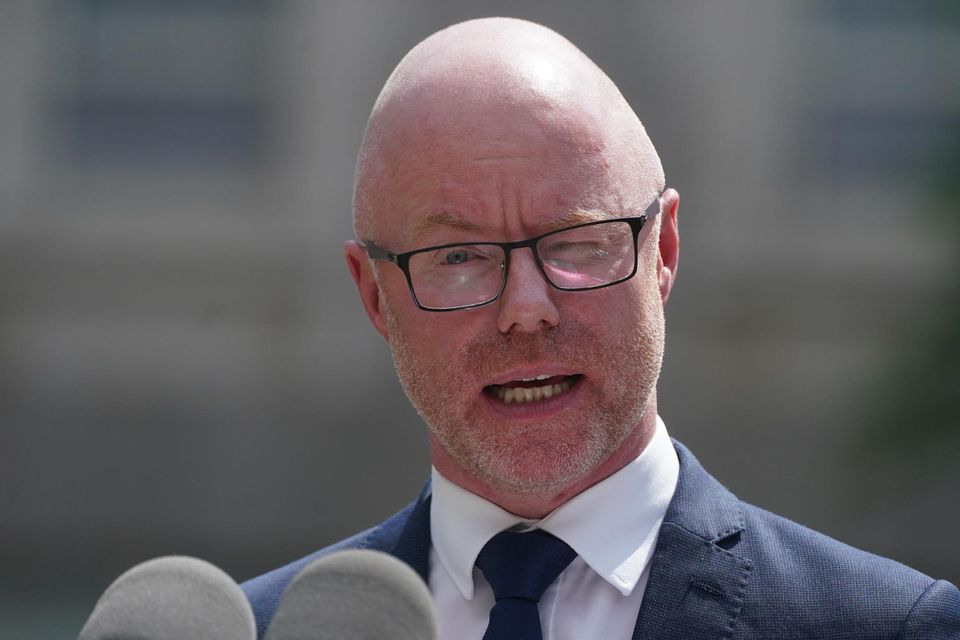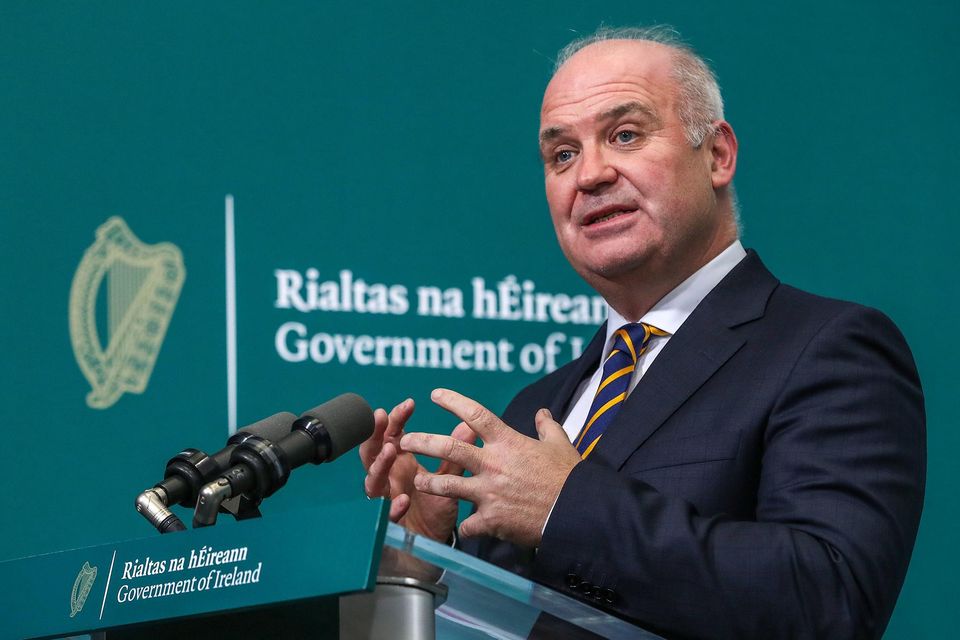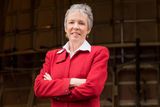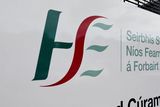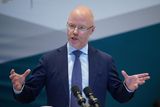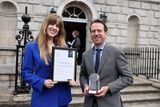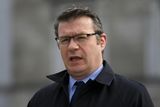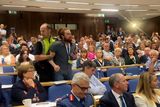Stephen Donnelly says suspected laptop and phone hack left him without email telling him of Tony Holohan Trinity secondment
Health Minister didn’t access both devices for two weeks and describes turn of events as ‘a matter of regret’
Health Minister Stephen Donnelly. Photo: PA
Health Minister Stephen Donnelly said today he could not access his emails over several days on a St Patrick’s Festival visit to Texas after he was told his laptop and phone might be hacked, leaving him without both devices for two weeks.
The minister was being quizzed on previous claims by his Department of Health secretary general Robert Watt that he could not send Mr Donnelly an email telling him of the €2m-a-year secondment of former chief medical officer Dr Tony Holohan to Trinity College in March last year because of the computer alert.
Mr Donnelly only became informed of the full arrangements when they became public the following month.
Appearing before the Joint Committee on Finance, Public Expenditure and Reform, he said he should have been told about the botched secondment, which would see Dr Holohan take up an academic post with a commitment of €2m in research a year, while retaining his €187,000 Department of Health salary.
Following controversy over the arrangement, which had not been made public when his transfer was announced, Dr Holohan decided not to take up the post and stepped down last July.
Asked by Sinn Féin TD Pearse Doherty how he could be without email for so long, Mr Donnelly said: “We arrived in Texas and were there for about a week, and around St Patrick's Day I was asked by my private secretary about the possibility that the laptop and phone were compromised. We were told not to turn them on for several days.
Dr Tony Holohan. Photo: Julien Behal
“We were given replacement phones for a few days. I then handed both my phone and my computer in when I got back to the department. My understanding is that they took a look. I got my computer and phone back about two weeks later.”
Asked if he could not access his email for two weeks, he said when he got back to the department he got a replacement laptop.
Asked if Mr Watt believed that sending an email might corrupt the entire device, the minister said that was a matter to ask the secretary general.
Officials said the alert had been made by the National Centre for Cybersecurity and after examination, it was found that the devices were not hacked.
The suspected hack was not mentioned in the report of former Unicef chief Maura Quinn who examined the circumstances around the proposed secondment.
The minister told the committee it was a “matter of regret” that he was not told of the circumstances around the proposed secondment of former Dr Holohan earlier.
“Notwithstanding the intense pressure officials involved were under, and their concerns about confidentiality, as I have said previously, it is a matter of regret that I was not informed at an earlier stage of the details of the proposed secondment,” he added.
“While it was clearly intended by all parties involved that the rigour of the Health Research Board be brought to any such funding, the fact that consultation had not happened at this point in the process led to much confusion in public commentary and the perception, at least, that this was not the intention."
Questioned by Aontú leader Peadar Tóibín, who asked if he was concerned officials are withholding information from him on other issues, he said: “No, I am not.”
He said there is a huge volume of work to be done by officials and he has faith in the management team.
Mr Tóibín asked him if he agreed with the conclusion of the report that protocols were breached. The minister said he accepted the full findings of the report.
There were important protocols to be agreed at the time, including the €2m a year which Mr Watt had committed to as research funding to Trinity College and would need to have been allowed for in the estimates.
Mr Tóibín said too many ministers are “passengers on buses” and fractured from senior civil servants.
Asked what has happened to the recommendations of the report, Mr Donnelly said he has sent it for implementation to the Department of Public Expenditure and Reform.
“I have written to the Minister for Public Expenditure and Reform to see whether there is a need to bring further clarity to the guidelines for secondments between the civil and public service,” he said.
“This report draws a line under this episode at a time when we have been engaged in an unprecedented expansion and reform of, and investment in, our health services.
“It also led to the loss of the former chief medical officer to the public service. As I have previously said, this is something that I regret greatly and indeed is deeply regretted by all who care for our health service.”
